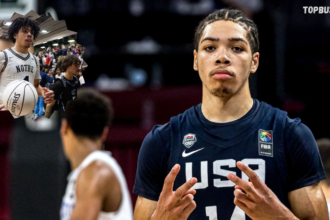powerlifting paralympics 2024 is a symbol of strength, resilience, and the human spirit’s ability to overcome obstacles. As we look ahead to the powerlifting paralympics 2024 in Paris, one of the most thrilling events will be Paralympic Powerlifting. This sport showcases athletes with physical disabilities, pushing their limits to compete at the highest level. In this article, powerlifting paralympics 2024 significance of powerlifting at the 2024 Paralympics, the rules that govern it, and the athletes who inspire millions.
Understanding Paralympic Powerlifting
What is Paralympic Powerlifting?
At its core, powerlifting paralympics 2024 revolves around one discipline: the bench press. Unlike Olympic powerlifting, which consists of three lifts (squat, bench press, and deadlift), Paralympic powerlifting focuses entirely on the bench press. This discipline has become a defining feature of the Paralympic Games since its debut in 1964, drawing athletes from all over the world who excel in pushing heavy weights from a prone position.
What sets powerlifting paralympics 2024 apart is its inclusivity. Athletes with various physical impairments, including spinal cord injuries, amputations, and cerebral palsy, compete in this event. The athletes are required to demonstrate both strength and technique, as each lift must meet strict standards to be considered valid. The goal is to lift the heaviest weight possible while adhering to precise form and movement guidelines.
The competition is held in weight categories for both men and women, with different divisions for varying levels of impairment. This ensures that athletes compete against others with similar physical capabilities, maintaining fairness and promoting healthy competition.
Classification System

One of the most critical aspects of Paralympic powerlifting is the classification system. This system ensures that all athletes compete in divisions that are fair and based on their level of functional ability. In powerlifting, this involves a detailed assessment of each athlete’s physical capabilities, including their strength and range of motion.
There are two main factors in determining classification: functional classification and weight categories. The functional classification helps categorize athletes into different divisions based on the degree of impairment, ensuring that everyone competes on a level playing field. Weight categories further refine the competition, dividing athletes by body weight to prevent any advantage based solely on physical size.
This classification system allows athletes to perform at their best and ensures that competition is as fair and equitable as possible, which is a cornerstone of the Paralympic Games philosophy.
Rules & Judging Criteria
The rules of Paralympic powerlifting are designed to create a fair, challenging, and safe competition for all athletes. Each athlete is required to perform a single lift of the bench press, with the goal of lifting the heaviest weight possible in a controlled and precise manner. The lift must be performed according to strict standards to be valid.
Judging in Paralympic powerlifting is based on several key criteria, such as the proper starting position, the movement of the barbell, and the athlete’s ability to complete the lift. A lift can be disqualified if the athlete doesn’t maintain the correct form, if there is insufficient pause at the chest, or if the barbell is moved improperly. Athletes are given three attempts to lift the heaviest weight they can manage, and the best valid lift is counted.
Each attempt is judged by a panel of officials, and the results are recorded as part of the athlete’s total performance.
The Road to Paris 2024
Qualification Process
Qualification for the 2024 Paralympics is an intense and rigorous process, requiring athletes to compete in various international events, including the World Championships and World Cup Series. These competitions allow athletes to earn ranking points, which are critical for securing a spot in the 2024 Paris Paralympic Games.
The qualification system is divided into regional and global events, with each continent having its own series of tournaments. Athletes who place highly in these tournaments earn qualification slots based on their performance. Additionally, there are spots allocated to the host nation (France), as well as for athletes who receive universality invitations, ensuring representation from countries with less developed adaptive sports infrastructure.
The road to qualification is long and arduous, with athletes constantly striving to improve their performance, build strength, and refine their technique. For many, it is not just about competing—it’s about proving that they belong on the world stage.
Top Contenders to Watch
As we approach the 2024 Paralympic Games, several top contenders are making waves in the powerlifting community. These athletes have already proven their prowess at the international level and are looking to make their mark in Paris. Among them are record-breaking champions and up-and-coming stars who have the potential to surprise fans.
Athletes like Paralympic gold medalist Ali Jawad from Great Britain, who has competed in multiple games, and Iran’s Mohammad Reza Mirzaei, a powerhouse in the lightweight category, are among the favorites. New talents, such as China’s Zhang Haixia, who has shown incredible growth in recent competitions, are also being closely watched as potential medalists.
These athletes represent the pinnacle of Paralympic powerlifting. Their dedication, focus, and passion for the sport are evident in their performances, and they serve as role models for aspiring athletes around the world.
Teams and Nations to Follow
In addition to individual athletes, certain countries have developed strong programs and support systems for Paralympic powerlifting. Iran, China, and Egypt are known for their dominance in the sport, consistently producing medalists at the world level. Russia, despite current geopolitical challenges, has a rich history of success in powerlifting and continues to be a key player.
The United States has also made significant strides in adaptive sports and is a country to watch for emerging athletes and competitive performances. Meanwhile, nations like Brazil and Nigeria are continuing to grow their Paralympic programs, with increasing representation and success on the global stage.
Powerlifting Events at the 2024 Paralympics
Event Schedule and Venue
The 2024 Paralympic powerlifting events will take place in Paris, France, from August 28 to September 8. The events will be held at the Paris Expo Porte de Versailles, a world-class venue known for hosting major international events. This venue has been adapted to meet the needs of athletes with disabilities, ensuring accessibility for both competitors and spectators alike.
The powerlifting events will follow a tightly scheduled program, with preliminary rounds and finals occurring over several days. Spectators can expect thrilling competitions, as athletes from around the world showcase their strength, technique, and determination.
Breakdown of Each Weight Class
Paralympic powerlifting is divided into weight classes for both men and women. Each class presents a unique challenge, with athletes lifting impressive weights that push the limits of human strength. Men’s weight categories include 49kg, 54kg, 59kg, 65kg, 72kg, 80kg, 88kg, 97kg, and +107kg, while women’s weight categories span from 41kg to +86kg.
Each of these weight classes features intense competition, with athletes striving to lift more than their competitors while maintaining perfect form. These categories also ensure fairness, as competitors are matched with others of similar body weight and strength potential.
Impact and Legacy of Paralympic Powerlifting
Empowering Athletes with Disabilities
Paralympic powerlifting is more than just a sport—it is a platform for empowerment. For many athletes, powerlifting provides a sense of purpose and self-worth that transcends the physical realm. It allows them to push beyond their physical limitations and prove that disability is not a barrier to excellence.
The sport has been instrumental in promoting inclusivity and changing the perception of individuals with disabilities. It has shown the world that athletes with disabilities can compete at the highest levels, inspiring individuals of all abilities to pursue their dreams and challenge themselves.
Inspiring the Next Generation
As the sport continues to grow in popularity, it is inspiring a new generation of adaptive athletes. Youth programs and training camps are increasingly accessible, helping young athletes with disabilities discover their potential. These programs focus on building strength, confidence, and discipline, setting the stage for future Paralympic champions.
Through role models and mentors, many young athletes now see powerlifting as a viable and empowering career path. The presence of stars like Ali Jawad and Zhang Haixia provides an incredible source of inspiration, encouraging the next generation to reach for greatness.
Conclusion
The Paralympic powerlifting event in 2024 promises to be one of the most exhilarating and inspiring competitions of the Paris Paralympic Games. With athletes from all over the world coming together to compete at the highest level, this event will highlight the strength, determination, and heart that define the spirit of the Paralympic Games. As we look ahead to Paris 2024, one thing is certain: Paralympic powerlifting will continue to break barriers and inspire audiences around the world.
You May Also Read: https://topbuzusa.com/sls-lifestyle/





